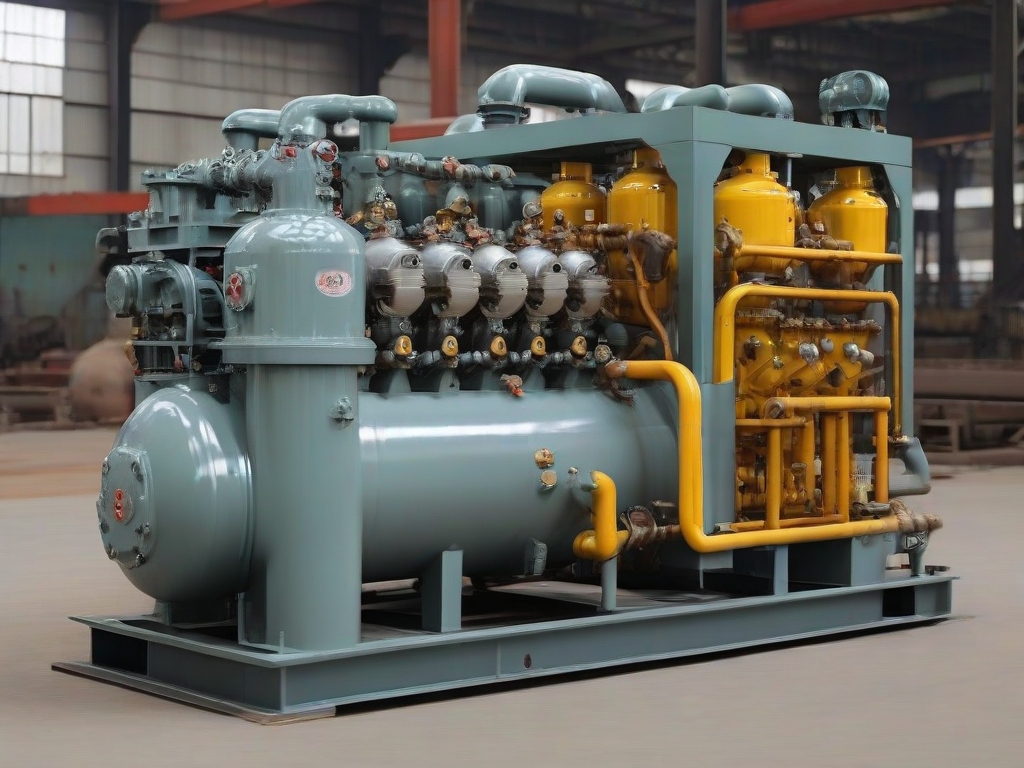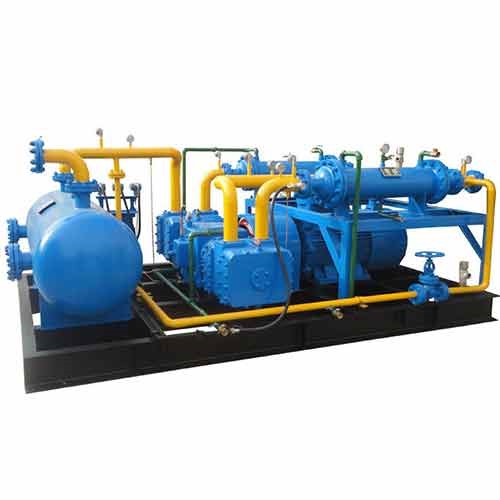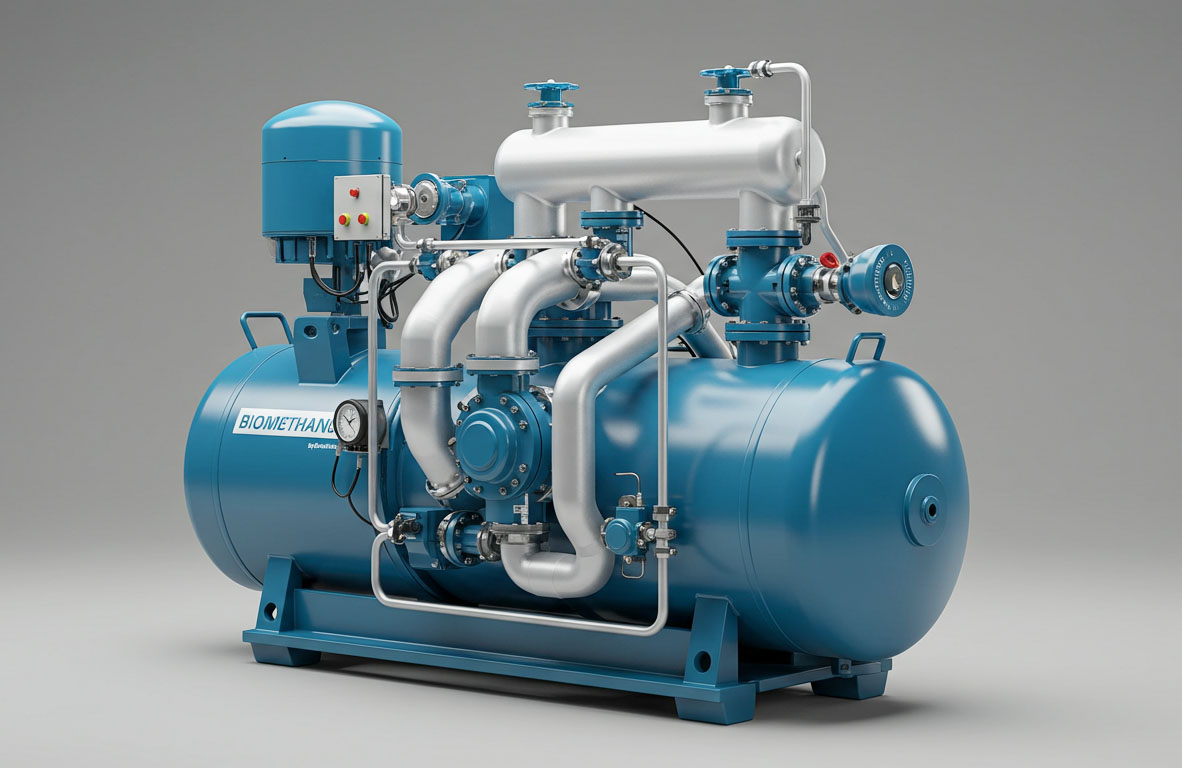High Performance Petroleum Gas compressor for Industrial Use
Choose the high-performance petroleum gas compressor for industrial use. Reciprocating LPG compressor to increase gas pressure and transfer gas vapor.

Introduction
In the intricate tapestry of industrial operations, the significance of high-performance petroleum gas compressors cannot be overstated. These engineering marvels play a pivotal role in various sectors, particularly in the oil and gas industry, where efficient compression of gases is essential for upstream, midstream, and downstream processes. In this comprehensive guide, we delve into the intricacies of gas compressors, focusing on their definition, working principles, applications, and the specific nuances of petroleum gas compressors.
Gas Compressor Fundamentals
Definition of Gas Compressor
A gas compressor is a mechanical device designed to increase the pressure of a gas by reducing its volume. This process is vital for multiple industrial applications, ranging from powering machinery to facilitating gas transportation.
Working Principle of a Gas Compressor
The fundamental working principle involves drawing in a gas, compressing it, and then expelling it at a higher pressure. Gas compressors are classified based on their design and the mechanism used to achieve compression.
Applications of Gas Compressors in Industrial Settings
Gas compressors find extensive applications across industries, contributing to processes such as gas transportation, refrigeration, chemical manufacturing, and, most notably, in the oil and gas sector.
Types of Gas Compressors
Common Types of Gas Compressors
There are several types of gas compressors, each tailored to specific applications. These include reciprocating, centrifugal, screw, vane, and oil-free compressors, each with unique advantages and considerations.
How Does a Petroleum Gas Compressor Work?
Petroleum gas compressors are specialized devices designed for handling the unique characteristics of gases in the oil and gas industry. They play a crucial role in enhancing the efficiency of various processes, ensuring a continuous and reliable supply of gas for downstream applications.
Overview of Petroleum Gas Compressors
Petroleum gas compressors are engineered to handle the challenges posed by the compression of hydrocarbon gases. These compressors are integral in the extraction, processing, and transportation of petroleum gases.
Key Components of a Petroleum Gas Compressor
Understanding the key components of petroleum gas compressors is essential for optimizing their performance. Components such as the compressor unit, driver, and control system work in harmony to ensure efficient compression and reliable operation.
Advantages of Using a Petroleum Gas Compressor
The utilization of petroleum gas compressors brings forth several advantages, including increased operational efficiency, reduced energy consumption, and enhanced overall productivity. These compressors play a crucial role in maintaining the integrity of the entire oil and gas production process.
Challenges Associated with Operating Petroleum Gas Compressors
While petroleum gas compressors offer numerous benefits, they also present challenges such as maintenance requirements, potential environmental impacts, and safety considerations. Overcoming these challenges is paramount to ensuring the sustained and safe operation of these critical assets.
Types of Gas Compressors in the Oil and Gas Industry
Reciprocating Gas Compressors
Reciprocating gas compressors operate on a piston-cylinder mechanism and are well-suited for applications requiring high pressure differentials. They are commonly employed in gas transmission pipelines and gas processing plants.
Centrifugal Gas Compressors
Centrifugal gas compressors utilize centrifugal force to achieve compression. These compressors are ideal for applications requiring large volumes of gas at moderate pressures, making them essential in the petrochemical industry.
Screw Gas Compressors
Screw gas compressors employ two intermeshing helical rotors to compress gas. Their design allows for a continuous and smooth flow of gas, making them suitable for various applications in the oil and gas sector.
Vane Gas Compressors
Vane gas compressors use rotating blades or vanes to compress gas. They are known for their simplicity and reliability, making them suitable for applications where a compact and efficient compressor is required.
Oil-Free Gas Compressors
Oil-free gas compressors eliminate the risk of gas contamination by using alternative lubrication methods. They are crucial in applications where compressed gas must remain free from any oil residues.
Key Considerations for Selecting an Industrial Gas Compressor
Capacity and Pressure Requirements
Determining the required capacity and pressure is fundamental in selecting the right gas compressor for an industrial application. Understanding the specific needs of the process ensures optimal performance and efficiency.
Energy Efficiency and Operational Costs
Energy efficiency is a critical factor in the selection of a gas compressor, as it directly impacts operational costs. Choosing a compressor with a high efficiency rating contributes to long-term cost savings and reduced environmental impact.
Maintenance and Reliability of Gas Compressors
Regular maintenance is essential to ensure the reliability and longevity of gas compressors. Selecting a compressor with a robust design and easy maintenance requirements is crucial for minimizing downtime and maximizing productivity.
Environmental and Safety Considerations
Environmental responsibility and safety are paramount in industrial settings. Selecting gas compressors with features such as emission control systems and safety interlocks ensures compliance with regulations and promotes a secure working environment.
Utilization of Industrial Gas Compressors in the Oil and Gas Production Process
Gas Compression in Upstream Operations
In upstream operations, gas compressors play a crucial role in enhancing the recovery of hydrocarbons from reservoirs. They are employed in gas lift systems, gas reinjection, and gas gathering stations to optimize production efficiency.
Utilization of Gas Compressors in Midstream Processing
In midstream processing, gas compressors are integral to the transportation of natural gas through pipelines. They maintain the required pressure levels, ensuring a steady and efficient flow of gas from production facilities to distribution points.
Applications of Gas Compressors in Downstream Refining and Distribution
Downstream applications include refining and distributing refined petroleum products. Gas compressors are employed in processes such as hydrogen production, catalytic cracking, and refining operations, contributing to the production of various end products.
Importance of Gas Compressors in Vapor Recovery and Emissions Control
Gas compressors are vital in vapor recovery systems, capturing and compressing volatile organic compounds (VOCs) emitted during various industrial processes. This not only ensures regulatory compliance but also promotes environmental sustainability by reducing emissions.
Conclusion
In conclusion, the role of high-performance petroleum gas compressors in the oil and gas industry is indispensable. Their diverse applications, coupled with advancements in technology, continue to drive efficiency and sustainability in industrial processes. As industries evolve, the selection and utilization of gas compressors will remain pivotal in meeting the ever-growing demands for energy and petrochemical products. Understanding the intricacies of these compressors is not just a necessity but a key to unlocking optimized performance and reliability in industrial operations.


